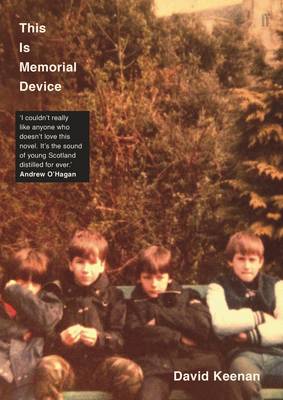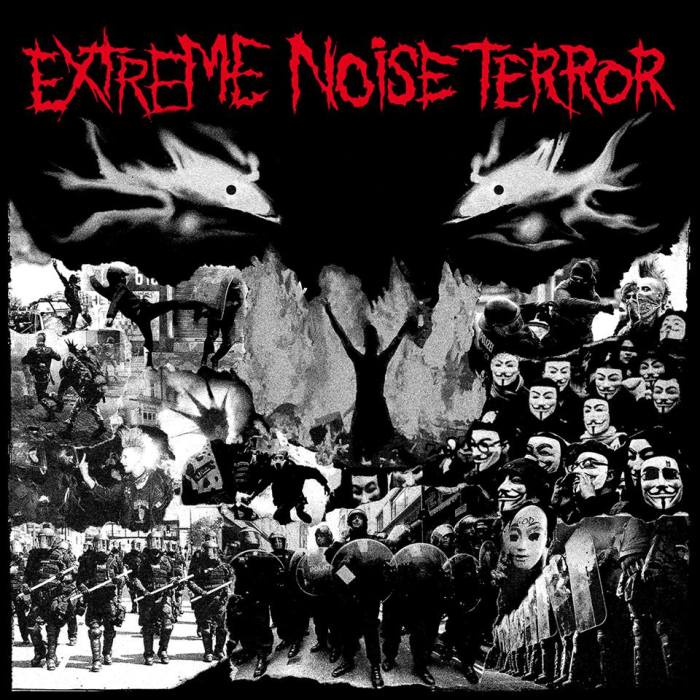
In a recent article in the Guardian newspaper, It’s not easy being Iggy Pop in Airdrie, writer David Keenan discussed the alternative music scene in the small Scottish town of Airdrie in the early 1980s. He recalled how “There was a time … when it felt as if anything could happen- though in the end, to the world at large, there isn’t a single speck of evidence remaining that it did.” This sense prevailed in small towns up and down the UK, Keenan believes. “Punk rock had failed in its promise to deliver music from musicians but, from 1978 to 1986, something much more electric had risen in its wake. People never used the term post-punk at the time, at least as far as I can remember, but there was a feeling that the entire culture was up for grabs.” He explained that “Punk had levelled everything and now post-punk was doing the remaking. It was no longer about London or even Manchester or any of the metropolitan centres. It was about covert DIY activity in small towns. It was about extreme musical experimentation drawn from a range of very alternative influences.” Keenan traces the sources of post-punk to “that feeling of pointlessness and despair, that sense that real life was always happening somewhere else…” But this pessimism “changed into a brief celebration of the moment and its potential. Post-punk spoke to us in Airdrie in a way that made us believe that the centre of the world was exactly where we were standing- and we had better do something about it. It was a catalyst for a mass flowering of the arts, an existentialist revolution that turned Britain’s working-class towns and villages on their heads.” Keenan has dramatised his teen experiences in suburban Scotland in the story of a fictional band, This is Memorial Device.
Keenan’s article makes a thrilling case for the cultural vibrancy of humble Airdrie in the late 1970s and early 1980s. Does his thesis apply elsewhere? My personal perspective is limited to Barnsley and Southampton, but as I have previously posted, the South Yorkshire mining town certainly had its ‘post-punk’ pioneers in the form of Danse Society. They too have made a point (recently at least) of labelling themselves post-punk, although (like Keenan) I rather doubt they used such a term back in 1980…

Keenan’s article also set me thinking about my own musical experimentation at this very same time, both in my home town and in Southampton, where I attended university. Amongst the ideas I tried out were the following:
- a new wave band comprising me on acoustic guitar and vocals, an electric bass player and a female vocalist who also played a single bass drum. We called ourselves Hari Dog Dom (I saw it sprayed on a wall) and briefly tried out a saxophonist too, but he was so loud you couldn’t hear anyone else- even with the amp turned up. Our first and only gig was hampered by the fact that (because I had started drinking early in the evening on an empty stomach) I was almost too drunk to stand up, let alone play in time with the bassist, and that we performed in a crowded front room so packed that the vocalist couldn’t reach us. For our second gig I wanted Charlotte to cycle around the venue reading poetry whilst we played on stage. This proved too avant garde for her and the experiment failed;
- in the summer of 1980 my dad gave me an old reel to reel tape recorder to mess around with. Besides just recording my compositions, I experimented with recording backing tracks at normal speed and then replaying them at half speed whilst playing and singing over the top. What it lacked in tunefulness, it made up for in radical novelty. Sadly, the fruits of my ground breaking efforts are lost along with the outdated technology used to capture them;
- about the same time I tried doggedly to adapt my father’s swing records, Glen Miller and such like, to a rock format. If you could hijack salsa into the pop charts (Kid Creole, Blue Rondo a la Turk, Modern Romance etc), why not 1940s swing? My efforts failed, which probably says more about my (want of) musical skills than the impossibility or inadvisability of the task I had set myself;
- an anarchist punk band who comprised two acoustic guitars and a flautist; folk-punk is perhaps the best term to describe us. We were called Success through dress- the name came from a 1920s book and we used 1920s graphics for our posters. The songs focussed upon a doomed, interwar theme, drawing parallels between the twenties and thirties and our present, during the Cold War and under the shadow of nuclear annihilation (Greenham Common being just up the road). Despite my pretensions to revolutionary fervour, we played our protest songs in a theatre bar in return for food… there’s probably a good moral about the enslaving power of capital and the opium of mass entertainment here should you wish to formulate it…
- lastly, I settled on a solo acoustic act: my angry songs performed alone- protest unplugged or some such. One witness described it as an anarchist garden party, which I have always chosen to regard as a compliment.
I have mentioned several of these projects in Rewind and edit, my first novel, a story set in Southampton and Barnsley during the early years of the 1980s. I have treated them as comedy, but Keenan’s article reminds me that there was a wider and more serious context, a preparedness in the early part of the decade to try out new genres and new forms. Friends of mine in Southampton, for example, were inspired by the size of the early Thompson Twins and the Latin rhythms of Pigbag to form a mass membership ensemble called Brouhaha. They were so numerous there were almost too many to fit on the student union stage and their percussion was improvised from such items as the ice tray from someone’s freezer. The same university scene generated My Mum, a four piece featuring proto-rap from two vocalists; one song reworked the poetry of Sylvia Plath into a chanted round that interwove and clashed over the backing track. They were genius: I offered the homage of covering one of their songs in my solo act because I was so awed and impressed.
As Keenan rightly records, it was a rich and exciting time.

Extreme noise terror- formed in Ipswich, 1986…
[…] of successive homegrown trends that felt more influential and impressive. As I suggested in my last post, the British rock scene was extraordinarily fertile in the late 1970s and […]
LikeLike